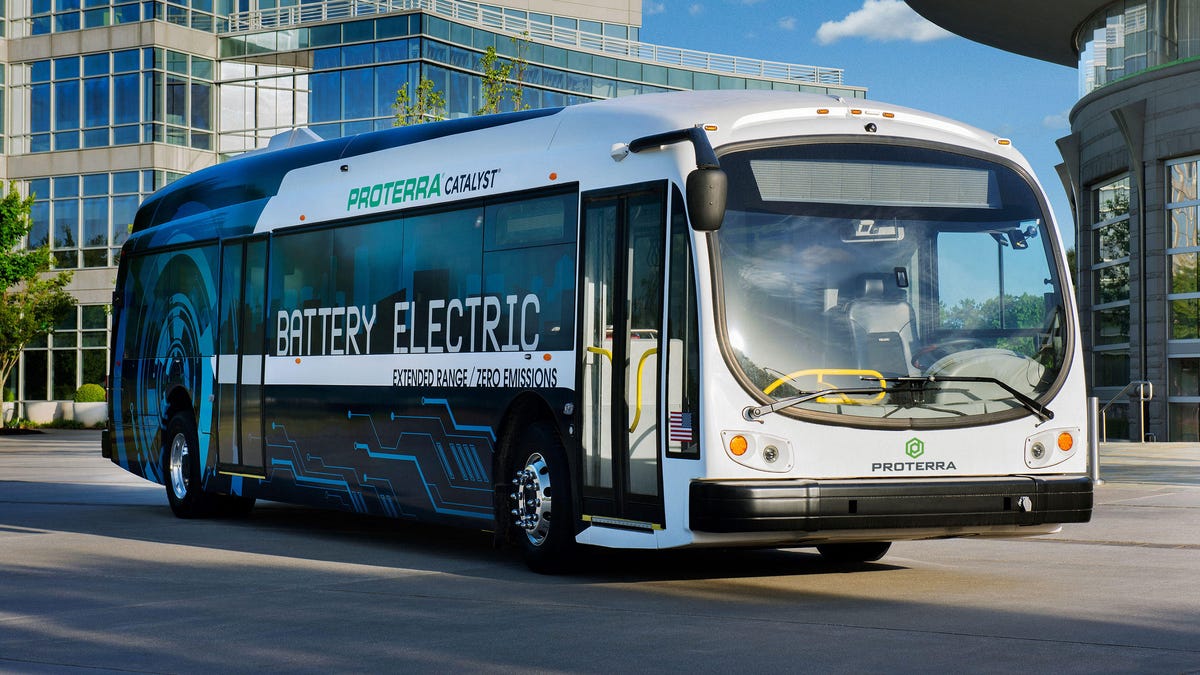80 percent of buses will be electric by 2040, study claims
Bus fleets will become electrified far more quickly than regular cars, according to a new study.

All-electric buses like this Proterra Catalyst will become a common sight on roads worldwide.
Putrid fumes and grumbling exhausts could all be a thing of the past for bus passengers in the coming decades. A new study from Bloomberg New Energy Finance (BNEF) predicts that bus fleets will switch to electric power very quickly, with 80 percent of all buses globally expected to be fully electric by 2040.
That's far quicker adoption of electric powertrains than the study predicts for regular cars. BNEF says just 30 percent of all light vehicles in 2040 will be EVs. While by 2030 the study predicts that 84 percent of all new buses sold will be electric, only 28 percent of new cars sold in that year are expected to be EVs.
There are some obvious advantages to electrifying buses. They tend to travel short distances in stop-and-go traffic, where an EV powertrain can recover significant energy through regenerative braking, whereas today's internal-combustion models tend to return pretty dismal fuel-economy numbers. For city dwellers, quieter and less-polluting buses are an obvious win. There are benefits for bus operators, too, as BNEF says that EV versions have lower total ownership costs than traditional models.
This isn't a far-off pipe dream, as BNEF says that there are already 300,000 electric buses on the roads in China. Major manufacturers like Volvo and Daimler have both rolled out electric buses. Another EV bus, the Proterra Catalyst E2, even drove an incredible 1,101.2 miles on a single charge of its 660 kilowatt-hour battery pack. Within the US, the San Francisco Municipal Transportation Agency has committed to running an all-electric bus fleet by 2035, with every new bus purchased after 2025 to be an EV.

